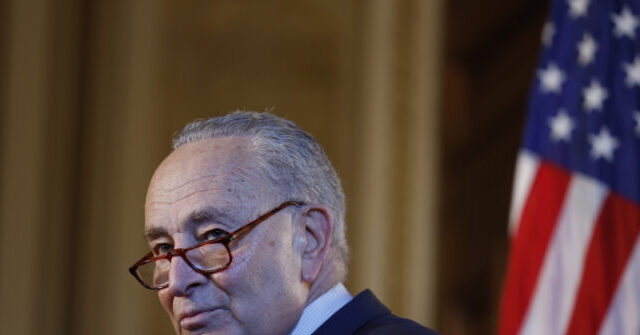Consumer sentiment fell in January for the first time in six months, with inflation concerns and a sharp drop in perceptions of current conditions among Democratic voters driving the decline.
The University of Michigan’s sentiment index dropped to 71.1, its lowest in three months, from 74 in December. The decline was more pronounced than preliminary data suggested, underscoring growing unease about the economy’s trajectory.
Consumers reported feeling better about their personal finances and said incomes were stronger. But assessments of business conditions, the labor market, and economic growth slumped.
“While assessments of personal finances inched up for the fifth consecutive month, all other index components pulled back,” the director of the survey, Joanne Hsu, said in a statement.
Democratic sentiment plunged to 63.8 from 69.6, with current economic conditions dropping sharply to 86.9 from 98.9. Expectations among Democrats fell to 48.9, down from 50.8 in December and a dramatic fall from October’s 93.1. That 47 percent decline cannot be explained by actual changes in current economic conditions. Instead, it largely reflects Democrats being unhappy with the outcome of the presidential election.
Republican sentiment, by contrast, ticked up slightly to 86.0 from 85.4, bolstered by improving views of current conditions, which rose to 57.5 from 52.0. Expectations among Republicans eased to 104.4 from 106.8. Independents saw mixed results, with overall sentiment falling to 67.9 from 70.2, driving by a decline in expectations to 64.4 from 69.5 that was somewhat offset by an improvement in the current conditions gauge to 73.3 from 71.4.
Inflation Expectations and Consumer Behavior
Inflation remains a top concern for consumers. Long-term inflation expectations rose to 3.2 percent, up from 3 percent in December, while short-term expectations climbed to 3.3 percent, the highest level since May. Some consumers reported purchasing goods in advance to avoid future price hikes, highlighting growing anxieties over rising costs.
The prospect of tariffs is fueling inflation fears, according to Hsu. The establishment media and many anti-tariff economists have warned that new import could push prices higher, although most economists think that tariffs are unlikely to create persistent inflation pressures. While the Trump administration expects lower energy costs to offset some price pressures, consumers remain wary of potential disruptions.
The Fed’s decision to cut interest rates three times last year, despite progress on bringing down inflation stalling, is likely also fueling fears of resurgent price pressure. The Fed is expected to signal a pause in rate cuts at its next meeting.
Labor Market Concerns Deepen, Housing Stress Persists
Nearly half of consumers—47 percent—expect unemployment to rise in the coming year, marking the highest level of concern since the pandemic recession. Despite reports of stronger income gains, worries about job security are mounting. The Trump administration has imposed a federal hiring freeze and telegraphed plans to downsize the government workforce.
The report also reflected persistent challenges in the housing market. Conditions for purchasing durable goods softened, and the share of respondents saying now is a bad time to buy a home remained elevated. Separate data released Friday from the National Association of Realtors showed existing-home sales fell to 4.06 million units in 2024, the lowest annual total since 1995.
Economic Divide Reflects Political Polarization
The partisan divide in economic sentiment has widened significantly. Democrats’ declining confidence highlights a stark contrast with Republicans, who remain optimistic about current conditions despite a slight pullback in expectations. This polarization underscores the broader challenges facing the administration as it seeks to address economic concerns while navigating deep ideological divides.
As inflation and labor market uncertainty persist, the January sentiment report reflects heightened anxiety among consumers and a politically charged economic outlook. The Trump administration’s policy responses in the months ahead will likely shape both market dynamics and public confidence.
Read the full article here


